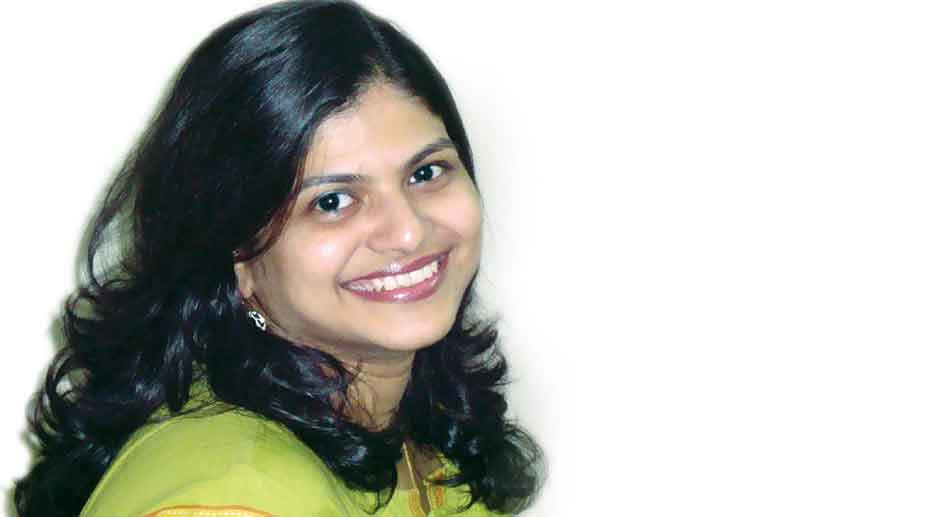Look forward to carrying legacy of Ratan Naval Tata: Noel Tata
Noel Naval Tata, the newly-appointed Chairman of Tata Trusts, on Friday said he looks forward to carrying on the legacy of Ratan Naval Tata and the founders of the Tata Group.

SWAHA-SAHOO
To recognise those who help shape little minds to think in big ways, the Parag initiative of Tata trusts has introduced the Big Little Book Award honouring the contribution of Indian authors and illustrators of children’s literature. This year, the award for author in Bengali language was presented to renowned writer Nabaneeta Dev Sen and the illustrator across languages to Proiti Roy. The leader of this initiative Swaha Sahoo shares her innovative thoughts on reviving the country’s regional languages. Excerpts:
Q. How did the idea of Big Little Book Awards come?
Advertisement
The Parag initiative of Tata trusts has been working towards children’s literature and reading for the last 14 years. In the process we attracted authors, illustrators and publishers. We felt that there isn’t enough recognition for them and also when we compare internationally, there are so many awards that specifically encourage children’s writings and illustrating. So we felt that we should have something that encourages them. This time we recognised those who are already contributing for the last few years to encourage the younger lot so that they will have something to look up to. So that’s how we decided to institute an award.
Advertisement
Q. What are some of the other initiatives of Parag to revive regional languages?
Parag works in three spaces. One is development of books for children. We work with a lot of publishers to try and create original content. One of our focus areas is promoting literature in as many Indian languages as we can — till date we have supported close to 450 original titles across nine Indian languages. It struck us that not all children have the capability to buy books. So we made libraries where they can have access to good quality children’s literature. That’s how we started supporting schools, communities and libraries.
Also we cater to capacity building. One must facilitate ways to unite children with books or imbibe the value of learning in them. For that certain skills become necessary, which are not really encouraged in our education system. We have Parag’s flagship library educative course that trains facilitators and teachers to run libraries and we also organise workshops for authors. Illustrations in text books nowadays are mostly stereotypical. So we launched another course called the Riyaaz Academy for illustrators two years back.
We are a small team working as a catalyst and activating partners. We identify the gaps and work accordingly to fill them without any financial stake. A lot of publishers are happy to work with us because we allow them independence.
Q. Do you think children are reading enough in this digital era?
In India there is no digital era as far as the majority of our children are concerned. The children who do have access to digital devices are still a minority. But we are not working for the minority. We try to provide books to those children who otherwise starve. And when for the first time they get hold of a book, it is as if a new world has opened up for them.
Q. Nowadays parents are trying to imbibe English education instead of letting children learn their mother tongue. What do you have to say about that?
It’s sad. There’s such a rich culture in our own languages and sometimes I feel very unfortunate that being an Indian I do not have access to all these languages. We completely support different languages and wish that more stories come up in them.
Inclusion is also another factor to be considered. There are languages that have established themselves but think about the children whose mother tongue is a tribal dialect, which do not have any script. Can you imagine the exclusion that a child feels? Keeping them in mind, we issue small books of literature translated into languages like Mundari or Santhali.
Q. Is the scope for children’s authors and illustrators who want to write in regional languages being threatened?
There are multiple challenges when we want to write in Indian languages. Creating original content is not an easy process. For that one must read and be exposed to different ideas. Since that isn’t always possible, publishers take the easy way out. They tend to rehash the story and republish it. Also they don’t focus on illustrations since it is both money and time consuming. Publishing has become a price conscious market. Beyond a certain point they will reject a book simply to avoid going through certain complicated procedures.
It needs a lot of dedication and I firmly believe it’s the government’s job. The mandate of the National Book Trust was to promote reading and help development of books into multiple languages. I don’t see this happening any time soon without a lot of grant support. I don’t know many places in India that supports developing good quality children’s books. The authors also have their own challenges.
Advertisement